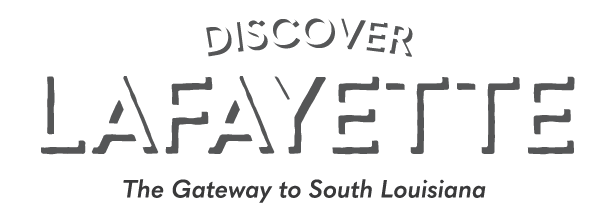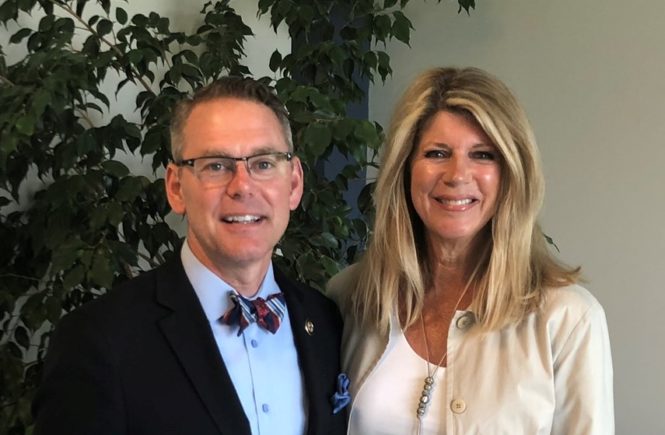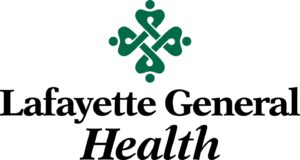Podcast: Play in new window | Download (Duration: 56:28 — 77.5MB)
David Callecod hit the ground running when he was hired by Lafayette General Hospital (“LGH”) in July 2008 as its President and CEO. Under the capable leadership of Lafayette General’s board of directors and its vision of creating a strong regional healthcare network, Callecod oversaw the partnership with St. Martin Hospital in Breaux Bridge within a few months of his arrival. He has also risen through the ranks of leadership with his peers and serves as the current chair of the Louisiana Hospital Association.
In 2008, Lafayette General Hospital had two facilities with 1700 employees and $170 million in net revenue. Fast forward eleven years, there are now 4600 employees with net revenue of $750 million in facilities the system owns which include Lafayette General Orthopaedic Hospital, Lafayette General Surgical Hospital, St. Martin Hospital, University Hospital & Clinics (UHC), Acadia General Hospital and Abrom Kaplan Memorial Hospital. LGH also enjoys partnerships with Abbeville General Hospital, Bunkie General Hospital, Cardiovascular Institute of the South, Franklin Foundation Hospital, Iberia Medical Center, Jennings American Legion Hospital, and Opelousas General Health System. When you combine all partners of LGH, the collective net revenue is $1.1 billion.
David Callecod is passionate and optimistic about the opportunities LGH has to positively transform health outcomes in South Louisiana. Humbly providing servant leadership to LGH’s vast network of health professionals, every hospital LGH has acquired has moved into the highest patient satisfaction rankings.
Lafayette General ‘s main campus serves as the Level Two Trauma Center for all of Southwest Louisiana covering the geographic region from the Atchalayafa Basin to the Texas border. From an economic development perspective, maintaining access to this high acuity healthcare in Lafayette prevents patients from transferring to larger regional centers such as Baton Rouge or Houston. On a personal level, it affords higher quality healthcare outcomes while giving loved ones the opportunity to receive treatment close to home.
A strategic partnership with Oschner Health Network was undertaken four years ago by LGH to combine its purchasing power and reduce overall costs to both systems. As the reimbursement model for health industry providers has quickly evolved, innovative approaches have been pursued to cut costs while ensuring the highest quality healthcare options to keep patients from needing to reenter the hospital. The partnership has also created an expansion of physician services such as in pediatric specialties, diagnostic imaging, and biomedical services.
LGH took over University Hospital five years ago amid massive budget cuts to LSU’s teaching and “charity” hospital system. Maintaining the program for graduate medical training in Lafayette is a critical component in attracting physicians to the area as many doctors decide to put down permanent roots in the geographic region in which they train. UHC and Lafayette General educate 82 residents per year, and approximately 250 residents rotate through Lafayette General from LSU each year. Specialties such as internal medicine, family practice, OB/GYN, general surgery and ENT are examples of strong programs taught, although many other specialties are represented.
Lafayette General’s Women’s Health division is now the #1 location for babies to be born in the region and the unit assists with the delivery of over 3200 babies each year. Run by Judy Robichaux, Director of Maternal, Newborn and Pediatric Services, the unit has earned a 99% patient satisfaction rating.
David Callecod serves on One Acadiana’s CEO Advisory Council and he is a big proponent of the “55 by 25” initiative to ensure that 55% of Acadiana’s adults achieve some type of higher ed certification by 2025. Educational achievement is directly tied to the quality of life outcomes experienced by people, including good health, and LGH supports this important focus of increasing educational outcomes in South Louisiana.
One-third of Acadiana’s residents (200,000 of the approximately 600,000 people) are eligible for Medicaid benefits, and one-half of this population is composed of children. Our region actually has the highest percentage of the Medicaid population in the state of Louisiana. While Medicaid expansion under the Obama administration and adoption of the expanded benefit coverage in Louisiana expand access to coverage, it did not correspondingly move in additional healthcare professionals to the region, according to Callecod. After the expansion of “Obamacare,” emergency rooms were flooded with additional patients who were covered by government-funded healthcare. Yet, the program has helped hospitals cover the cost of services they are mandated to provide and Callecod stated that about 54,000 people access healthcare through University Hospital and Clinic (UHC) each year.
The Beacon Project, developed by the Justice and Health Collaborative and funded by Blue Cross and Blue Shield, is near and dear to Callecod as an effective method to improve our community’s health and prevent patients from using the emergency room as a revolving door for treatment. Our region is unique in many ways due to high poverty levels and social determinants of health which have much more to do with health outcomes than the quality of healthcare one receives. Factors such as food and housing insecurity, lack of a caregiver at home, reliable transportation and social isolation greatly impact how a person heals and how likely it is they will end up back in an emergency room for further treatment. LGH identifies patients who have social needs and connects them with assistance through the Beacon Project which calls upon community partners in existence locally, such as Catholic Services of Acadiana, Volunteers of America, FoodNet Food Bank of Lafayette, Acadiana Area Human Services District and Volunteer Instructors Teaching Adults. In just one 90-day period in partnering with the Beacon Project, LGH radically reduced readmissions, cut down on billings of approximately $12 million to the Medicaid system, and recognized direct savings of up to $2 million in costs by cutting out unnecessary services that could be avoided with adequate attention to underlying social needs.
This podcast hones in on the poignant fact that healthcare delivery is changing dramatically overnight, due to changing market forces. These changes keep David up at night thinking about the future of healthcare delivery. Healthcare is a huge portion (20%) of the GDP of the United States and companies such as Uber, Amazon and CVS are stepping up to compete for the “vertical patients” who are relatively healthy but need some sort of assistance. As David stated, the only people hospitals are guaranteed to help are those that are “horizontal,” being carried into the hospital, and showing up with critical healthcare needs. Keeping up with changing market trends and delivering services to the healthy majority is the only way hospitals will be able to survive in the long term and deliver critical care when it is most needed. Keeping up with technological innovation is the key to survival.
Hospitals are now being reimbursed for “outcomes” and not for the traditional “per treatment” or Fee For Service model historical model. To address this reality, LGH has increased its partnerships with home-based healthcare agencies, rehabilitation centers, longterm acute care agencies, and palliative care organizations to increase beneficial outcomes which prevent patients from incurring the need to be readmitted to the hospital.
Lafayette General Health has plans to invest in revitalizing the Oil Center in the Hospital Drive corridor by adding a medical office building, increasing the size of its Cancer Center and Neuroscience Center, and add convenient housing for its 82 residents. Utilizing Opportunity Zone tax credits and monies invested through its Lafayette General Health Foundation, LGH is excited about its upcoming growth and increased footprint.
The Innovation Fund 1.0 was set up by Lafayette General Health Foundation to strategically invest in companies that are developing new ways of providing healthcare services that LGH will use. LGH serves as the “testbed” for the products. Get Well Loop is a good example of a new mobile device that helps LGH to follow up its case management and the app is now being used by providers across the country. Another successful project funded with $250,000 from the Foundation is RDnote which aims to improve the lives of people with chronic diseases by providing high-quality nutrition care in clinical settings and at home.
Innovation Fund 2.0 has recently been funded with $6 million for a new round of product development. Partners include the Schumacher Group, LHC and Acadian Companies who are assisting and positioning Lafayette as the go-to place for incubating revolutionary healthcare products.
Telemedicine provides the newest method of delivering healthcare by maximizing the services of providers LGH employs and was first utilized in-house at Stuller. This innovative program is also utilized by LGH’s own employees, Lafayette City Government, and the St. Martin Parish Jail. Utilized by local elementary schools, statistics show that the children are missing just a fraction of the days they used to, test scores are improving, and the kids are keeping their seats! Telestroke, telepsychiatry, and telehospitalist virtual delivery services have been successfully employed to add value, lower costs and maximize the time providers have to deliver treatment.
Please visit https://www.lafayettegeneral.com for more information on all services provided to ensure your best health care.




